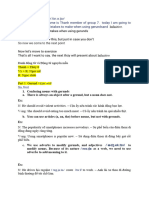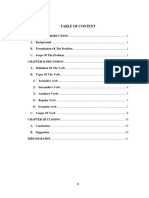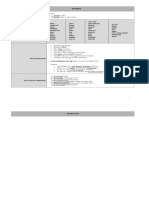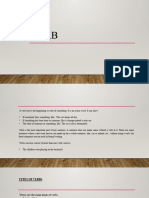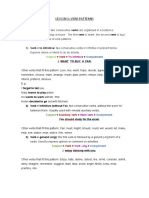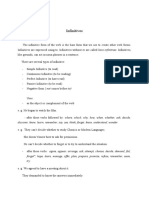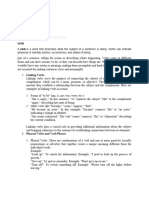0% found this document useful (0 votes)
7 views3 pagesVerb Patterns
The document outlines various verb patterns in English, including structures such as 'verb + object + to-infinitive' and 'verb + for someone + to-infinitive.' It provides examples of verbs that follow these patterns and explains the use of gerunds with certain verbs. Additionally, it highlights the differences in meaning when using infinitives versus gerunds in specific contexts.
Uploaded by
More SosaCopyright
© © All Rights Reserved
We take content rights seriously. If you suspect this is your content, claim it here.
Available Formats
Download as PDF, TXT or read online on Scribd
0% found this document useful (0 votes)
7 views3 pagesVerb Patterns
The document outlines various verb patterns in English, including structures such as 'verb + object + to-infinitive' and 'verb + for someone + to-infinitive.' It provides examples of verbs that follow these patterns and explains the use of gerunds with certain verbs. Additionally, it highlights the differences in meaning when using infinitives versus gerunds in specific contexts.
Uploaded by
More SosaCopyright
© © All Rights Reserved
We take content rights seriously. If you suspect this is your content, claim it here.
Available Formats
Download as PDF, TXT or read online on Scribd
/ 3















